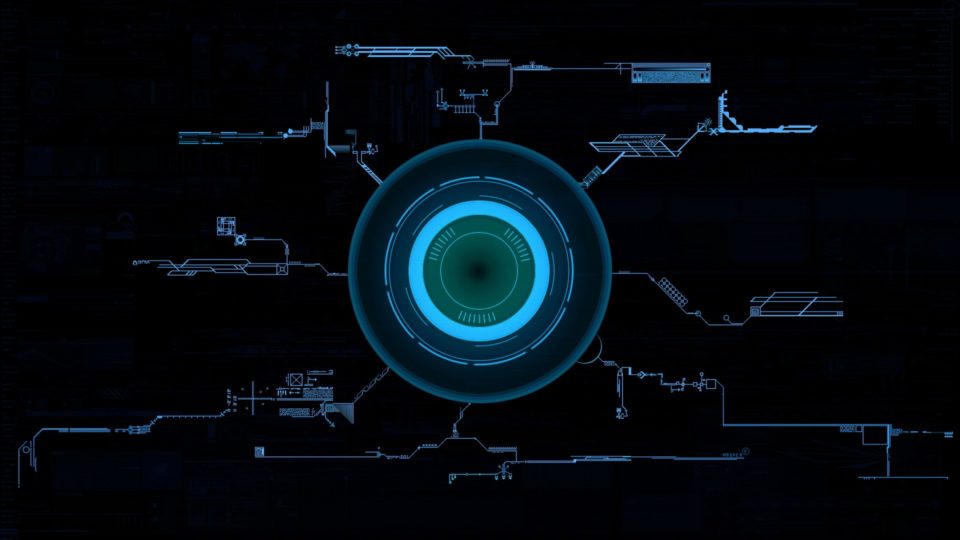Development of artificial intelligence will probably force human society to change some habits and ways they perceive enterprise. And that’s a great thing. AI can help humanity to cure diseases, replace us in almost every aspect of production, and help us learn more about ourselves.
copyright by technovagh.com
 Of course, one part of the population looks at AI with a dose of doubt , but there’s no reason for fear. We can’t be sure, but it is not likely that machines will take over the world and eliminate humans. Today’s AI possibilities are far away from that, and the text below will provide you with some important information on past, present, and future of the AI and how it will impact the enterprise.
Of course, one part of the population looks at AI with a dose of doubt , but there’s no reason for fear. We can’t be sure, but it is not likely that machines will take over the world and eliminate humans. Today’s AI possibilities are far away from that, and the text below will provide you with some important information on past, present, and future of the AI and how it will impact the enterprise.
One Century Among Humans
AI came back in the last few years, but the truth is that it was among humans for almost 100 years. First thoughts about artificial humans were presented in Pavel Čapek ’s book “ Rossum’s Universal Robots ”, and Alan Turing ’s groundbreaking paper called “ Computing Machinery and Intelligence ”. Turing became famous for deciphering Nazi Germany’s communication machine called Enigma, and he managed to do that by developing a rudimentary computer.
Thanks to his ideas, computer scientists of the second half of the 20th century started working on developing chess playing computers which would eventually beat a human. One of the most important events for AI took place in New York in 1997, when IBM’s computer called Deep Blue managed to beat the world chess champion, and probably the best chess player ever, Garry Kasparov. Unfortunately, big companies didn’t have the interest to get involved in AI development, so humanity forgot about that and AI went in its second winter, after the one it had during 70’s and 80’s.
Back On Track
As suggested above, AI managed to survive two winters and most of the biggest companies got involved in the further development of this revolutionary technology. Some of them already invested great capital to develop personal assistants such as Alexa and Siri. Others created face and speech recognition software and that’s about it when it comes to AI. This type of technology can only be functional if it is provided with big chunks of information, called Big data.
Scientists are working on neural networks that can help AI learn new skills and it’s still uncertain how it will impact the enterprise. According to a 2017 report published by McKinsey Global Institute, just 20% of C-level executives already incorporated AI into their everyday work. Therefore, a dose of doubt is still present, but better days for artificial intelligence are yet to come. […]
read more – copyright by technovagh.com
Thank you for reading this post, don't forget to subscribe to our AI NAVIGATOR!


Development of artificial intelligence will probably force human society to change some habits and ways they perceive enterprise. And that’s a great thing. AI can help humanity to cure diseases, replace us in almost every aspect of production, and help us learn more about ourselves.
copyright by technovagh.com
One Century Among Humans
AI came back in the last few years, but the truth is that it was among humans for almost 100 years. First thoughts about artificial humans were presented in Pavel Čapek ’s book “ Rossum’s Universal Robots ”, and Alan Turing ’s groundbreaking paper called “ Computing Machinery and Intelligence ”. Turing became famous for deciphering Nazi Germany’s communication machine called Enigma, and he managed to do that by developing a rudimentary computer.
Thanks to his ideas, computer scientists of the second half of the 20th century started working on developing chess playing computers which would eventually beat a human. One of the most important events for AI took place in New York in 1997, when IBM’s computer called Deep Blue managed to beat the world chess champion, and probably the best chess player ever, Garry Kasparov. Unfortunately, big companies didn’t have the interest to get involved in AI development, so humanity forgot about that and AI went in its second winter, after the one it had during 70’s and 80’s.
Back On Track
As suggested above, AI managed to survive two winters and most of the biggest companies got involved in the further development of this revolutionary technology. Some of them already invested great capital to develop personal assistants such as Alexa and Siri. Others created face and speech recognition software and that’s about it when it comes to AI. This type of technology can only be functional if it is provided with big chunks of information, called Big data.
Scientists are working on neural networks that can help AI learn new skills and it’s still uncertain how it will impact the enterprise. According to a 2017 report published by McKinsey Global Institute, just 20% of C-level executives already incorporated AI into their everyday work. Therefore, a dose of doubt is still present, but better days for artificial intelligence are yet to come. […]
read more – copyright by technovagh.com
Thank you for reading this post, don't forget to subscribe to our AI NAVIGATOR!
Share this: